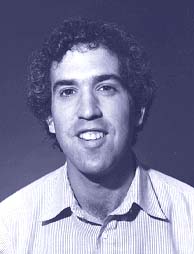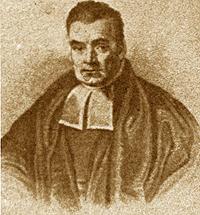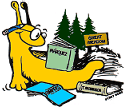| SOE Home |
ROBERT A. LEVINSON |
Professor of Computer Science, UCSC
Education
B.S., Mathematics, B.S., Computer Science,
University of Minnesota
Ph.D., Computer Science,
University of Texas at Austin
| Publications | Chess Links | Bayesian Links | AI Links | Classes |
| Event Photos |

Research
Robert Levinson's research crosses the broad spectrum of topics in Artificial Intelligence research - specifically in the areas of machine learning, heuristic search, knowledge representation, associative pattern retrieval and machine creativity. His major project, unifying his research, has been an adaptive pattern-oriented chess system named Morph, a system that learns to play respectable chess from its experience only.
Levinson's primary research goal is to give computers the benefit of experience. He believes that the fact that most computers do not make use of previous experience is a tremendous waste of computation. To serve his research goal he has developed a domain-independent learning architecture APS by which systems can improve their decision making and predictive abilities over time with little human assistance. To further his goal he has developed sophisticated algorithms for the content-based retrieval of structural patterns. These algorithms are being used in the Knowledge Representation community and commercially in Gerard Ellis's Santiago system. Levinson's methods have been or are currently being applied in the domains of organic chemistry, signal recognition, image alignment, medical diagnosis, and manufacturing systems design in addition to chess and other games.
Levinson is co-authoring a book called Scientific Thinking: A Systems Approach with Andrew Goodwin. The draft version of it is currently out for peer review.
He has consulted for Alphacet.com,Engineering Resource Associates, FMC,IBM, Minnesota Gas Company, TextWise, University of Minnesota, and the University of Texas.
|
Chess LinksWorld Champion Gary Kasparov in "The Test of Time"Bob's collected chess quotes Play The Turk! Play TkChess Chess Tutorial More Chess Resources |
| Original sculpture by Alan Boileau on the web at douglasgallery |
Bayesian LinksBayesians WorldwideDavid Heckerman's Bayesian Research Probability Theory: The Logic of Science - Bob highly recommends this book by E.T.Jaynes, though not as a textbook but as a coherent solution to uncertain inference. |

|
| Catch some history of Bayes at the Bayesian site |
Some AI Links
AI Resource CenterA LISP Primer
John F. Sowa's web page
Some interesting web pages on Intelligent Agents
Artificial Intelligence - A Modern Approach (includes Lisp Code). This Intelligent Agent book has been used as a text book for the graduate class.
ClassesNote: The class web pages may not be upto date, please follow the
respective class news groups. CMPS140 - Artificial Intelligence (Under-Graduate) CMPS240 - Artificial Intelligence (Graduate) [Class Wiki]. CMPS241 - Knowledge Engineering (Graduate) |
 x
x
|